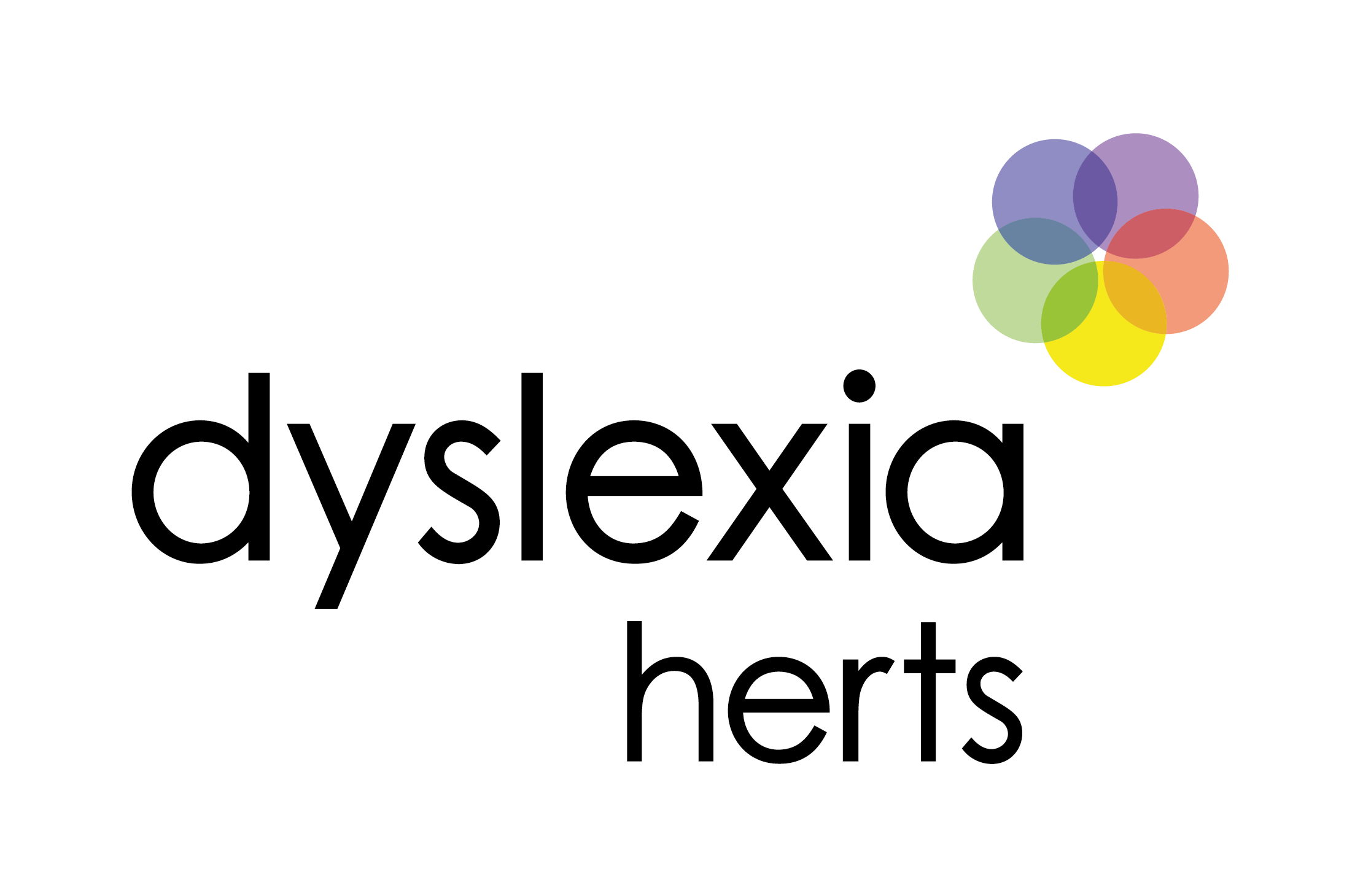Individuals: Parents & Children
For you and your child an assessment to explore dyslexia may be an important first step in finding out how they learn best
We provide a dyslexia screening and assessment service for parents who want to find out whether their child may have a specific learning difference. We offer supportive and impartial advice and will be on hand to answer any questions.
After your assessment we offer feedback and give guidance on next steps
.
We offer a range of assessments:
A full diagnostic assessment is for anyone who has not previously been assessed and wants to know if they have specific learning differences, dyslexia, or for those who would like an updated report on their progress since a previous assessment., perhaps on transition to secondary school or sixth form/ college.
A detailed assessment report is produced, including a diagnosis of dyslexia where appropriate. The assessment usually takes around two and a half to three hours, including breaks.
The assessment will be a mixture of short activities that look at verbal and visual ability, cognitive processing (this includes assessments of working memory, phonological skills and other areas.) It will also involve assessments of reading, writing and Maths, if appropriate. This will then mean that the assessor can see your child’s profile of strengths and challenges and make personalised recommendations for studying at school, college or university, or at home. Suggestions for Access Arrangements in examinations will also be included. The report will be suitable to access support at university through the Disabled Students Allowance (DSA).
This is a shorter assessment focusing on areas of concern in literacy or numeracy to investigate current levels of performance and strengths and weaknesses in these areas and progress made. It will not be possible for a diagnosis of dyslexia to be made, as no cognitive testing, or assessment has been carried out.
The assessment session may last about 1 – 1 ½ hours and would involve appropriate testing which could involve looking in detail at areas such as reading skills- word reading, comprehension, oral reading skills, writing skills- spelling, handwriting and written composition or Maths skills
This Literacy or Numeracy Review is appropriate for younger children when parents do not yet wish to undertake a full diagnostic assessment, or for children who have been previously assessed as an update to see what progress has been made or for parents who have concerns about aspects of their child’s literacy or numeracy and would like to know what they can do to help at home.
The Literacy/Numeracy Review would provide recommendations for home and school, including resources and assistive technology that may help to move learning forward.
An Access Arrangements Assessment is a shorter assessment specifically to determine access arrangements for exams based on feedback from the school.
No formal diagnosis of dyslexia can be given. The session will last approximately one hour.
Any access arrangements should reflect your child’s history of need (based on evidence provided by parents and the school) and normal way of working in school. In view of this, it is essential that a Family Questionnaire is completed and that the school are involved and supportive of the process.
The specialist assessor will suggest appropriate access arrangements, but it is the school’s role to decide what access arrangements to apply for and to make the application to the awarding body if appropriate. This in line with the current JCQ regulations which can be found here.
There is lots of evidence to suggest that early intervention is very important for children. Parents often worry about ‘labelling’ their child, but this can be vital for them to understand about themselves and how they will learn best.
No screenings are 100% reliable but our Child Screening Form may give you a better idea of your child’s strengths and challenges which could be signs of dyslexia. We can then contact you to discuss possible options.
If you are thinking of investigating possible dyslexia, we would always advise you to talk to your child’s teacher or the school SENCO and show them the results of the screening. It is good to work together to support your child and for the school to be involved from the start.
If you would like to discuss this please contact us by phone on 01442 463950 or email or you may want to Book a call where you can get some information and advice on the possible next steps for you and your child.
There are many different reasons for wanting an assessment for your child:
- You may wish to explore whether your child has dyslexia to help you to understand why they are having difficulties with aspects of their learning and suggest ways that they can be best supported at home and at school.
- Your child may be going to university next year and need an assessment to apply for the Disabled Students’ Allowance (DSA).
- Your child may be having difficulties with literacy or numeracy and you would like to find out more and have suggestions of ways you could support them at home.
- You may need an assessment to determine the access arrangements your child may need in exams.
Assessments can take place:
- Face to face at our centre in Berkhamsted
- Online -for Children from Year 9 upwards. You would need to have good connectivity and be in a quiet, private space. A parent, guardian or other appropriate adult would need to be at hand during the assessment
We offer a range of assessments, details of which are provided on this page.
We offer a range of assessments, details of which are provided opposite.
Once you have completed our Child Screening Form a member of the team will be in touch and will give you a link to our online booking system so you can choose a date and time that suits you best. If you prefer, they can book the appointment for your child and will be on hand to guide you and answer your questions.
- We would also ask for feedback from the school. This could be the SENDCo and/or your child’s teacher
- It is also very helpful for us to have feedback from your child.
If you are happy with this we will provide forms. This information would be shared with the specialist assessor and would be included in the report , with your consent.
If you have any questions and would like to discuss these with someone please either call us on 01442 463950 or Book a call
Your child should have had an eye test recently (ideally within the last six months). If they wear glasses or use coloured overlays, they should bring these with them to their appointment. If you or the school have any concerns about your child’s hearing this should also be checked before the appointment.
They can bring examples of their schoolwork and school reports with them.
It is important to talk to your child about the assessment. You can explain that we all learn in different ways and that they will be spending some time with someone working together to see how they learn best. They may be doing some reading and writing and also other activities with pictures and shapes. This will help you to support them at home and will also help their teachers to understand more about them and what might help to make things easier for them at school.
You can download our leaflet and read it together.
We also like this short film clip Seeing Dyslexia Differently. You might like to watch it with your child.
We allow a three hour appointment for an assessment – the assessor will spend some time getting to know your child so they feel happy and relaxed and able to do their best and will build in short breaks whenever they are needed.
There will be a mixture of short tasks that will be different for each individual which will then give the assessor a clear picture of your child’s unique profile of strengths and challenges so they can make recommendations to move their learning forward.
The assessor may give you some general feedback but will not be able to give you a definite decision about whether your child has dyslexia on the day.
You will receive your report within 15 working days of the assessment. This is sent to you by email, but if you need a hard copy or any adaptations, like enlarged print please let us know.
You will be able to arrange a time for a telephone or face to face consultation with the diagnostic assessor who will be able to answer any questions you may have and give advice and guidance.
You are always welcome to book a further consultation in future, for example when your child is moving on to secondary school or if you need more advice.
You might also like to check out our courses for parents.
After having an assessment, you may decide to arrange some regular support for your child. It is important to choose a specialist teacher with Level 5 or Level 7 qualifications in teaching learners with specific learning differences, dyslexia. They will be able to use the report to plan a personalised programme of sessions for your child using their strengths. Specialist support can have a big impact on progress.
If we do not have anyone within your area, we can advise you about how to find a suitably qualified tutor. Contact us by phone or email to find out more.


